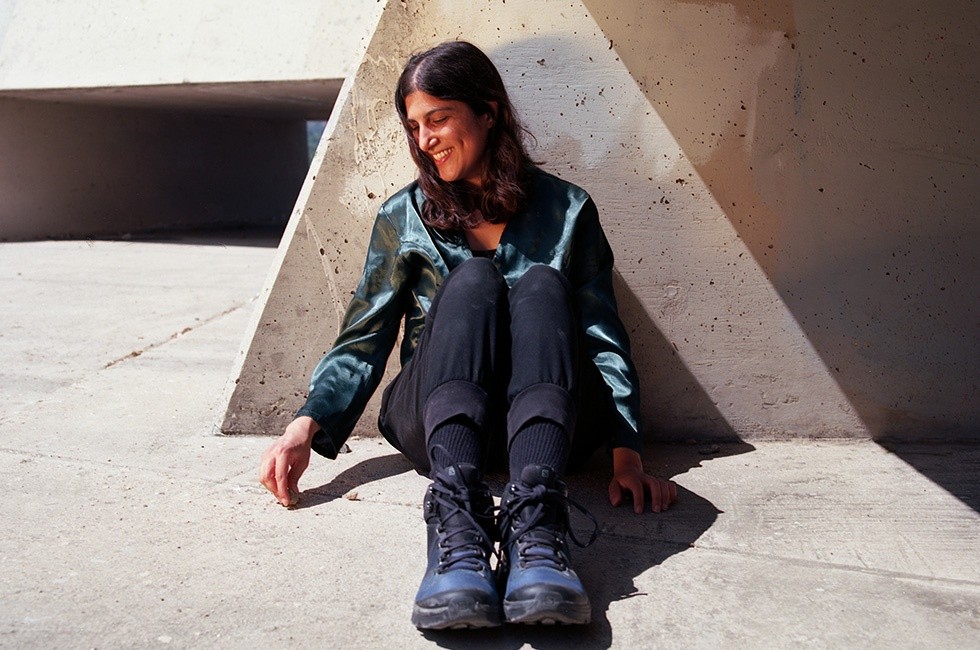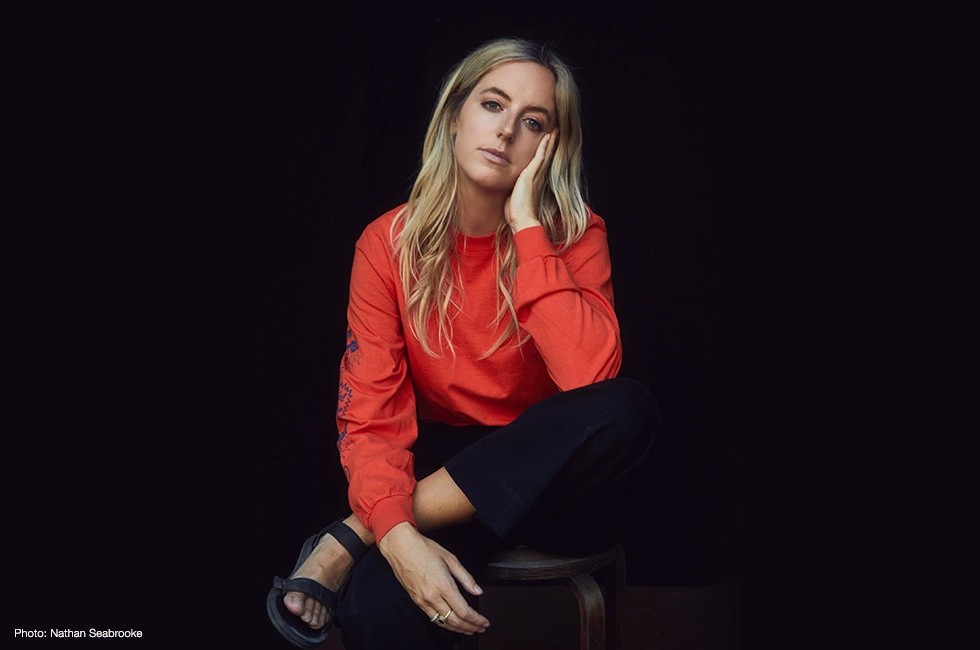Get Your Voice Heard
The music industry has to some extent always been a tumultuous habitat, and 2020 is most definitely no exception: dictated by streaming algorithms, rife with more competition than ever and currently at the mercy of a dessamating global pandemic - for up-and-coming artists, it may seem like a daunting place to enter.
But it also has a history of true resilience. Let’s not forget it was only two decades ago that digital technology pulled the record business inside out, taking until 2015 to finally move into recovery. And, like it has before, in 2020 the music industry is fighting back: evolving new techniques and platforms for artists to survive these chaotic times. In this article i’ll do my best to navigate these tools, and provide some basic A&R tips for growing your career as a new act in an apocalyptic year.
One important reminder before we get going: every journey is unique, subjective and highly complex. As an A&R and label co-founder, for me to attempt to blueprint a formula for universal success would not only be ignorant, but also narcissistic. We’re here to guide artists and to amplify their vision, the rest is down to you. With this in mind, let’s get started:
1. It’s all about the music
There are 40,000 songs uploaded to Spotify every day, that’s 14.6m a year. Affordable home studio gear (Focusrite’s Scarlett being no exception) has made music creation universally accessible and affordable. But with this celebration of mass creativity comes a lot more competition.
The average music fan, perusing streaming services on their lunch break is now overwhelmed with choice. In 2019, over 20% of songs on Spotify had never been listened to. This begs the question, “What are you really saying with your music, your art, that others aren’t?” What are you doing to stand out over those 39,999 other songs?

Duo Minimal Violence’s commitment to their trademark sound is evident in everything they do. Photo credit: George Nebieridze.
As an A&R, some of the most inspiring artists I’ve worked with recently are the ones that are uncompromisingly themselves. It would be hard to get Brooklyn producer Umfang mixed up with another artist. Canadian duo Minimal Violence have a deep-rooted commitment to their dark, unwavering sound, and you can recognise a track by Los Angeles based Maral in the first ten seconds of any song in her catalogue. The music these artists make support my first tip: make sure your art is saying something. Create your own personal signature.
I realise this is easier said than done: If you’re stuck, a nice way of experimenting in your production might be to give yourself limitations when you write. Perhaps create templates or stripped-back sound palettes that could help streamline a sound or create an identity in your flow. The rise of software technology means we now have every synth, loop and classical instrument available at our fingertips, so sometimes having limits can be helpful. Lest we forget Grimes wrote the whole of Visions on GarageBand.
"Make sure your art is saying something."
Most importantly, can your songs hold their own when they’re stripped back? Take away the sidechain or the riser or that perfectly sampled kick drum — can people still connect with your song? I’m a true believer that every hit out there, regardless of genre, works because it speaks to people on a deeper level, be that relatable lyrics or an infectious melody that you can’t get out of your head.
2. Don’t overthink it
A common stumbling block for any new artist in their pursuit of success isn’t how little they know about Ableton or how few plug-ins they use, it’s the inability to finish a song and share it with the world. This industry moves fast, and while some masterpieces take years, even decades, to perfect, there’s a chance that the industry could leave you behind; I’ve seen talented artists severely damage their career this way. Salvador Dali describes this most succinctly: “Have no fear of perfection, you’ll never reach it.”

Producer Maral leans a lot on her community and the “music ecosystem”, and takes time to nurture herself and her fellow music makers. Photo credit: Robb Klassen.
Maral, who recently released on my label, SOS Music, is praised by the likes of Pitchfork and FACT for her incredibly original mashed-out versions of Jersey club, reggaeton and dub. She spoke with me recently about the importance of getting on with things: “You shouldn't weigh yourself down with needing to be technically or musically savvy to make music,” she says. “It's more about finding your own way to use these programs or instruments and therefore finding your own unique sound."
"Make music that’s true to you, find your path, and don’t be afraid of imperfection."
Of course there are no rules, and an eye for detail and perfectionism can work for some, but there’s no doubt that a lack of confidence is the biggest creativity killer in this biz. Our industry is riddled with imposter syndrome, and if you can beat it, chances are you’ll have a much higher success rate. Growing up in Brighton, UK in the mid-’90s, I was frequently mocked by local DJs and grumpy record store managers for not being enough of a ‘head’ to DJ, or not having refined enough taste to be an A&R. I lost years wrapped up in my own insecurities over my career and ability. Learn from my mistakes: Make music that’s true to you, find your path, and don’t be afraid of imperfection.
3. Get to know your fanbase — and talk to them!
There’s an unwritten rule that others shouldn’t dictate one’s art, but having a sense of who will like your music isn’t always a bad thing. It doesn’t matter if you’re making futurepop, folk, techno or ambient sounds; make sure you have an inkling of who you’re really speaking to. Social media and streaming platforms have useful data that provide detailed insights into this, with location and demographic information readily available.
Once you have a sense of who your fans are, start engaging with them. I cannot stress this enough: you can’t expect a fanbase to grow like a beautiful sunflower if you don’t water it. We live in a cultural climate where social media often dictates an artist’s relationship with their fans, and those relationships have never been more intimate and, quite frankly, more thirsty for content.
Social media isn’t for everyone, (we’ve all seen The Social Dilemma at this point). Not every aspiring artist belongs on TikTok or Instagram TV, and that’s completely OK. But fan interaction has become temporarily more challenging since COVID hit. We’ve lost a multi-billion dollar live industry, worth over 50% of the music business’ total revenue, and arguably one of the best methods of speaking to fans on a personal level.
So, if you can’t play live shows and Instagram isn’t your thing, what’s left? It’s encouraging to see platforms like Patreon, Twitch and Mixcloud Live helping artists showcase their music. Several artists have spoken out about the benefits of the Patreon community, in which fans pay tiered monthly fees for direct fan-to-artist content, performances and more.
British dance/pop artist Little Boots has recently found a welcoming home on the service. “Until this year I still relied on live and DJ gig fees for the bulk of my income,” she told me, “but the pandemic changed everything. Patreon has made me completely reassess my business model and my connection with my fans. I now have a platform where I make consistent income without needing to tour, whilst building a whole new community of hyper engaged fans that I am able to give something back to.”
4. Build a community and give back
Honing your craft, building your brand and promoting yourself tirelessly is great, but it’s not quite the full picture. A positive addition is to participate in the musical communities that inspire you and to support them in any way you can.
To A&Rs, aspiring acts that have impressive grassroots networks can be a strong sign of a commitment to their career. Start to build relationships where you can. Sure, cyber-stalking every generic record executive you find on LinkedIn probably isn’t the best tactic, but if there are like-minded artists, club promoters or local radio DJs you admire, don’t be afraid to reach out and make friends. Often sharing your music with peers can improve your work and open up a world of opportunities.
These communities could revolve around anything from independent radio stations like NTS or dublab, to Reddit threads for Focusrite users, live venues or record stores. Alejandro Cohen, founder of iconic independent L.A. radio station dublab, has spent 21 years building a safe space for artists to connect: “Sharing resources, contacts and opportunities is the best way to prove you stand behind your mission,” he says.
For Maral, who has shows on both NTS and dublab, giving back has been a fundamental part of her work ethos: "I think about the music ecosystem a lot and how we can have a positive impact on it. A big part of that is interacting with your community, and not just taking but also giving. The best way to flourish as an artist in my opinion is to nurture not just yourself but others.”
All communities have to start somewhere. If you don’t feel like you belong to a particular community, why not start one? Have an idea for a radio show? Record and upload it! Can’t find a home for your music? Release it yourself! Chances are you’ll make friends and build a blossoming community for yourself and others along the way.
About the author
Maddy Salvage is a label head, A&R, producer and DJ with 12+ years of industry experience at indies and majors in London + Los Angeles respectively. She’s currently VP A&R in North America for iconic independent label, Ninja Tune, and this year, she co-founded a new Los Angeles-based label, SOS Music; focusing on leftfield electronic with a keen emphasis on female and non-binary artists.

Photo credit: Nathan Seabrooke.
Words: Maddy Salvage (VP A&R, North America, Ninja Tune and SOS Music co-founder)
